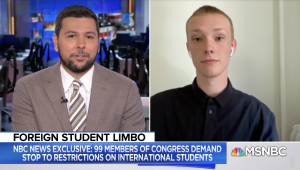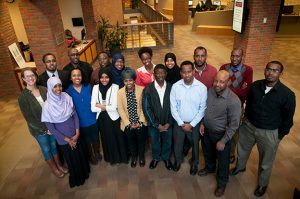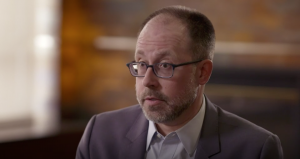 Content Warning: Sexual Assault
Content Warning: Sexual Assault
In light of recent inquiries Augsburg has received as well as forthcoming changes to U.S. Department of Education requirements for the ways colleges and universities investigate and address accusations of sexual misconduct, Augsburg is reiterating its current process for reporting and investigating such conduct.
Augsburg University takes allegations of sexual misconduct very seriously. The following information is not all encompassing; it’s intended to be a brief introduction and/or reminder about Augsburg’s policies and procedures for responding to reports of misconduct and violence. Additional information can be found on the Student Affairs website.
How to file a report
Anyone who experiences or is aware of an incident of sexual misconduct is strongly encouraged to share the information with the university and to seek support.
If you or someone you know would like to report sexual misconduct, you may do so by filling out this form. The form goes immediately to Katie Bishop, chief student success officer and Title IX coordinator, and Sarah Griesse, dean of students.
What happens when a report is filed
When a report is filed, Augsburg initiates a process to gather information about the incident, including meeting with students. When appropriate, a disciplinary meeting is held. As needed, Augsburg may put in place interim measures to promote safety and access to the school for the parties named in the report until the investigation has been resolved. In many cases, those who submit a report as a third party about conduct in which they were not personally involved will not learn the specifics of how the report was investigated or the outcome because of legal protections for the privacy of students involved.
Immediate support
If you are in need of immediate support, Augsburg partners with the University of Minnesota’s Aurora Center to provide confidential sexual assault, stalking, and relationship violence support to the Augsburg community (students, staff, faculty, and concerned others).
Phone support: call 612-626-9111 (24/7) to talk to a trained advocate.
Walk-in support and appointments are available from Aurora Center’s professional staff during their business hours.
On your request, Augsburg’s Department of Public Safety can support you in getting connected to the Aurora Center (24/7, call 612-330-1717).
Additional support is available through other providers:
24/7 support through the Sexual Violence Center, a member of the TransYouth Support Network, at 612-871-5111.
Isuroon, an organization focused on connecting and supporting East Afrikan women.
 MinnPost recently ran an opinion piece on gun violence by Lindsay Starck, assistant professor of English and associate director of Augsburg University’s MFA program. In her August 13 commentary, “Defund the guns: They do not make us safer,” she notes that gun sales have gone up since people have been calling to defund the police and asks readers to reconsider the best ways to protect themselves. She points to findings that people are actually less safe when they bring guns into their homes. Instead she suggests that we “support community-led anti-violence programs that are proven to work.”
MinnPost recently ran an opinion piece on gun violence by Lindsay Starck, assistant professor of English and associate director of Augsburg University’s MFA program. In her August 13 commentary, “Defund the guns: They do not make us safer,” she notes that gun sales have gone up since people have been calling to defund the police and asks readers to reconsider the best ways to protect themselves. She points to findings that people are actually less safe when they bring guns into their homes. Instead she suggests that we “support community-led anti-violence programs that are proven to work.”








